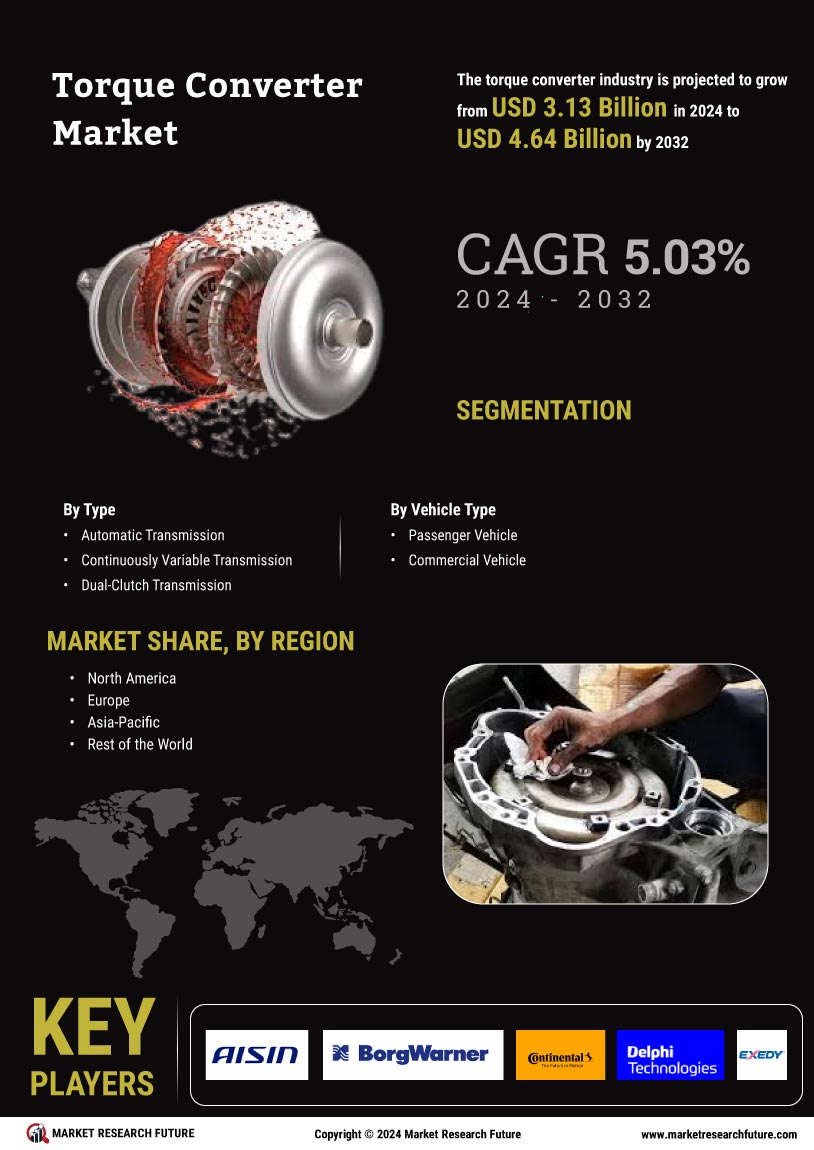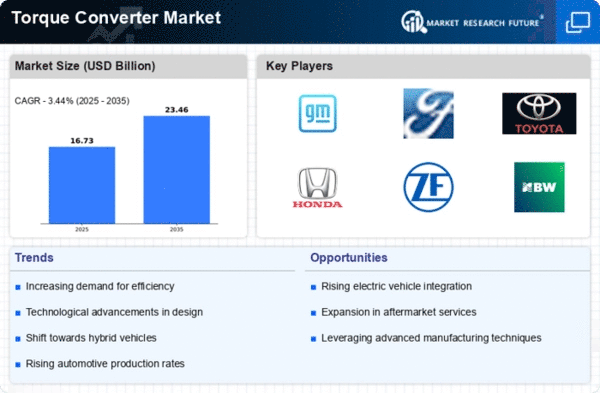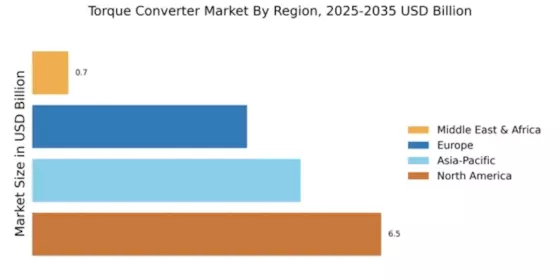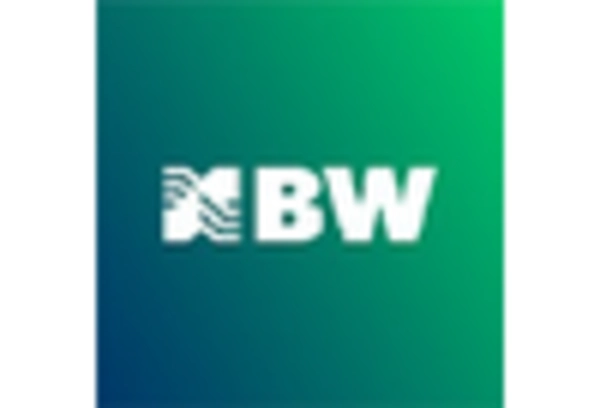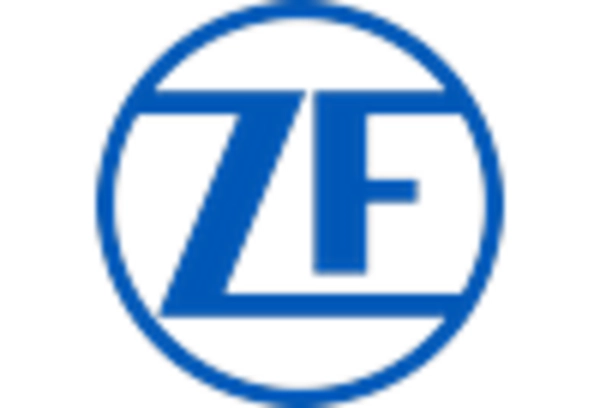North America : Market Leader in Torque Converters
North America is poised to maintain its leadership in the torque converter market, holding a significant share of 6.5 in 2024. The region's growth is driven by increasing vehicle production, technological advancements, and a shift towards fuel-efficient systems. Regulatory support for emissions reduction and fuel economy standards further catalyzes demand for advanced torque converters, making it a key market for innovation and investment. The competitive landscape is dominated by major players such as General Motors, Ford, and BorgWarner, which are investing heavily in R&D to enhance product offerings. The U.S. and Canada are the leading countries, with a robust automotive sector that emphasizes performance and efficiency. This competitive environment fosters collaboration and innovation, ensuring that North America remains at the forefront of the torque converter market.
Europe : Emerging Hub for Innovation
Europe's torque converter market is projected to reach 4.0 by 2025, driven by stringent environmental regulations and a growing demand for electric and hybrid vehicles. The region's commitment to sustainability and reducing carbon emissions is a significant catalyst for the adoption of advanced torque converter technologies. Regulatory frameworks, such as the EU's Green Deal, are pushing manufacturers to innovate and enhance efficiency, thereby boosting market growth. Leading countries in this region include Germany, France, and the UK, where major automotive manufacturers like ZF Friedrichshafen and Valeo are headquartered. The competitive landscape is characterized by a focus on R&D and partnerships aimed at developing next-generation torque converters. This innovation-driven environment positions Europe as a key player in the global market, fostering advancements that align with sustainability goals.
Asia-Pacific : Rapid Growth and Demand
The Asia-Pacific region is witnessing rapid growth in the torque converter market, projected to reach 5.0 by 2025. This growth is fueled by increasing vehicle production, urbanization, and rising disposable incomes, leading to higher demand for automobiles. Countries like China and India are at the forefront, with government initiatives promoting electric vehicles and advanced automotive technologies, further driving the market's expansion. China is the largest market in the region, hosting key players such as Toyota and Honda, which are investing in innovative torque converter solutions. The competitive landscape is marked by a mix of local and international manufacturers, all vying for market share. As the region continues to develop its automotive sector, the demand for efficient and high-performance torque converters is expected to rise significantly, solidifying Asia-Pacific's position in the global market.
Middle East and Africa : Emerging Market Potential
The Middle East and Africa (MEA) region represents a nascent but growing market for torque converters, with a projected size of 0.67 by 2025. The growth is primarily driven by increasing automotive production and a rising demand for fuel-efficient vehicles. Government initiatives aimed at enhancing the automotive sector and infrastructure development are also contributing to market expansion, albeit at a slower pace compared to other regions. Countries like South Africa and the UAE are leading the charge, with a focus on modernizing their automotive industries. The competitive landscape is still developing, with opportunities for both local and international players to establish a foothold. As the region continues to invest in automotive technology and infrastructure, the torque converter market is expected to gain traction, presenting significant growth opportunities for stakeholders.
